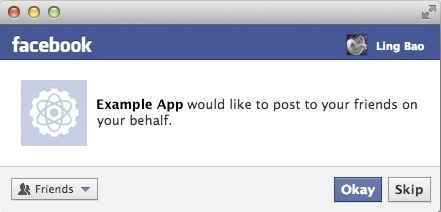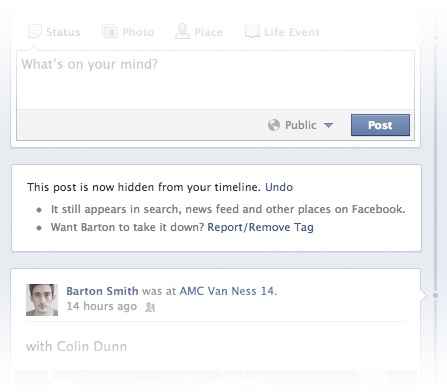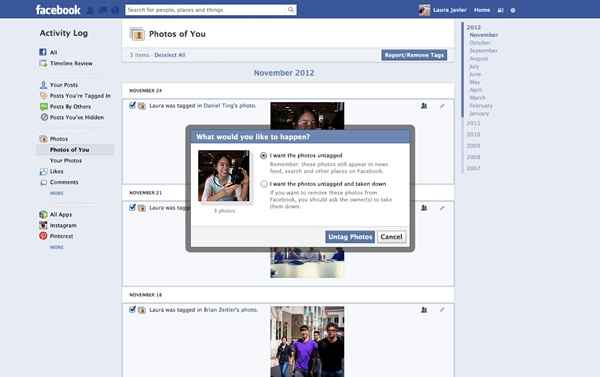Do you need to keep up with Facebook’s privacy changes?

Anytime Facebook makes changes to its Privacy Settings, as it did once again on Wednesday, a number of users panic. An equal number of users berate the panickers for panicking, and many more don't even realize anything changed.
 Survey
SurveyDo Facebook's privacy policies matter? Are you better off among the oblivious? Do you need to keep up with Facebook's privacy changes? It seems simple enough. If you're someone who panics, quit the site and delete your account, right? But getting rid of Facebook isn't such a simple proposition, nor is ignoring its ever-shifting privacy policies.
Privacy Concerns are Personal
It'd be convenient to believe that everyone's privacy concerns are similar or static. But they're not.
Despite the fact that my name and picture are plastered at the top of every article I publish, I have a number of unique privacy issues, and several years ago, they were entirely different.
In the early 2000s, I worked for a small magazine whose editor-in-chief wanted to put my bio and headshot on the affiliated website. I was firmly against it. It's amazing how different the Internet landscape was not even 10 years ago. At the time, I had just moved cross-country, and for the first time in a long time, I was living at an address that was unknown to someone who was a threat to me.
Facebook Privacy Changes
Sure, my name appeared inside every issue of the magazine, and it wouldn't have been hard for someone to figure out the city and state where I lived if he tried—except that I have an extraordinarily common name in America. By sheer stroke of luck, my name alone gives me some sense of anonymity when I want it. That all would change, however, if my picture were attached to my name, as the editor-in-chief had wanted.
I offered a compromise. I'd use a cartoon instead an actual photo, one of a dark haired female with glasses that looked enough like me but wouldn't be immediately identifiable. It worked.
Privacy Shortcuts: When the new updates go live at the end of the year, the toolbar atop of Facebook will include a new lock icon; click that and a drop-down
menu will include a "Who can see my stuff?" option, as well as "Who can contact me?" or "How do I stop someone from bothering me?"
That person who once represented a true danger to me is no longer a threat, as you may have guessed. Thankfully, I don't have to maintain a heightened awareness of every place where my face and name appear together. Now I'm more concerned with the reputation attached to my name and face than the visibility itself. Things change. But I've been there and I get it.
'Then Quit Facebook' Is Thoughtless Advice
If you need to keep your information private for true security reasons, don't join social networks. Period.
We know this now. We can say it with certainty now. The problem is things were different when Facebook started, years ago, when many people first joined.
Separate Permissions: Before today's update, Facebook apps would combine all their permissions in one menu before installing on your accounts. Going forward they will be separate, like this …
People joined when a lot more privacy was possible. Those settings and the people who used them were never grandfathered in to the present day. If you joined Facebook a few years ago with the idea of keeping your profile, relationships, image, and contact information private, you'll find that you no longer can. Facebook doesn't exactly "change" privacy settings so much as it deletes existing ones and replaces them entirely. That has historically been a huge part of the problem.
Another problem is that people who have been on Facebook for quite some time are folded into the network, and it's not so easy to disengage.
Sure, from a technical perspective, you can quit anytime, but that's not how people operate psychologically and socially. A few of my friends have indeed dropped out of Facebook, and rest assured, they fall out of the loop in terms of social happenings all the time. Anyone who gives the advice, "If you don't like Facebook's privacy policies, then delete your account," isn't seriously thinking about interpersonal relationships. Technology is one thing, but how humans relate is another.
Separate Permissions: … and this.
Learn Not From Facebook, But From Your Friends
I won't pretend to have any good advice here about what to do if you don't like Facebook's newly "simplified" privacy settings—which, I might add, eliminate one method of blocking certain users from finding your timeline—because any "good" advice must necessarily be personal. Do your friends use Facebook as a primary communication tool for important issues, like engagement announcements? Does your employer "strongly encourage" (i.e., require) you to "spread the word" (i.e., post positively) about clients, projects, or the organization where you work? Will your mom be supremely ticked off if she thinks you're ignoring her status updates, when in fact you've deleted your Facebook account? Like I said, getting rid of Facebook isn't a simple proposition.
Facebook lost the public's trust about changes to privacy policies long ago. Now, even when the company implements changes that are actual improvements—which is the case with some of the latest features—few people buy the argument. Moreover, it's always confusing.
Alerts: Alerts will appear when you hide or block something from your account to explain that the content might show up elsewhere on the site.
One of the features that sounds like it is on the right track, in terms of empowering users about their privacy settings, is an alert system that will remind you how certain features work as you use them, "such as in-context reminders about how stuff you hide from timeline may still appear in news feed, search, and other places," according to Facebook. But you'll probably learn more about the policy changes and their significance from your friends than from Facebook.
Most of us will grin and bear it. I have a few friends who live on Facebook under pseudonyms, or signed up with an email address created for the express purpose of keeping a low profile on Facebook. Workarounds may be one of the more useful solutions people have, depending on their individual needs and circumstances.
Activity Log: Facebook rolled out new navigation for Activity Log, as well as new ways to sort information to make it easier to drill down and see what's online.
Do you have a non-traditional tactic for maintaining your privacy (or sanity)? Do share it in the comments below… and maybe via Facebook, too.
Manage: The Activity Log also now has a request and removal tool that will let you more easily get rid of embarrassing photos or check-ins you don't want to broadcast to the entire world.
Copyright © 2010 Ziff Davis Publishing Holdings Inc





